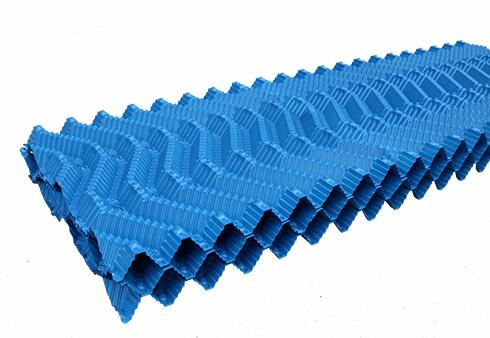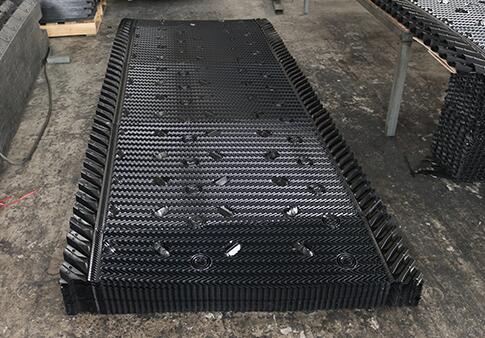How Often Should Cooling Tower Fill Be Replaced?
Cooling towers are an essential component of many industrial and commercial buildings. They are used to remove heat from a building's HVAC system, and they play a vital role in keeping the building comfortable and safe. One of the most critical components of a cooling tower is the fill, which is responsible for increasing the surface area of the water and facilitating heat transfer. Over time, however, the fill can become clogged or damaged, which can reduce the efficiency of the cooling tower. This raises the question: how often should cooling tower fill be replaced?
What is cooling tower fill?
Before answering that question, let's first define what cooling tower fill is. Cooling tower fill is a type of heat exchanger that is used to increase the surface area of the water in a cooling tower. The fill is typically made of plastic or metal and is designed to maximize the contact between the water and the air passing through the tower. As the water flows over the fill, heat is transferred from the water to the air, and the water is cooled.
Why does the cooling tower fill need to be replaced?
Over time, the cooling tower fill can become clogged with dirt, debris, and minerals from the water. This can reduce the efficiency of the cooling tower and can even lead to the growth of harmful bacteria like Legionella. Additionally, the fill can become damaged due to exposure to UV rays or extreme temperatures, which can also reduce its efficiency.
How often should the cooling tower fill be replaced?
The frequency at which cooling tower fill should be replaced depends on several factors, including the type of fill, the quality of the water, and the environment in which the tower operates. In general, however, it is recommended that the cooling tower fill to be replaced every five years.
If the cooling tower is operating in a harsh environment or is using poor-quality water, the fill may need to be replaced more frequently. Similarly, if the tower is using a more durable type of fill, such as stainless steel, the fill may be able to last longer than five years.
How can you tell if the cooling tower fill needs to be replaced?
There are several signs that the cooling tower fill may need to be replaced. These include:
ㆍReduced efficiency: If the cooling tower is not cooling the water as effectively as it used to, it may be a sign that the fill is clogged or damaged.
ㆍIncreased energy bills: A cooling tower that is not functioning efficiently will require more energy to operate, which will be reflected in higher energy bills.
ㆍIncreased maintenance: If the cooling tower requires more frequent maintenance than usual, it may be a sign that the fill needs to be replaced.
ㆍVisible damage: If the fill is visibly cracked, warped, or otherwise damaged, it should be replaced as soon as possible.
Conclusion
Cooling tower fill is an essential component of any cooling tower, and it plays a critical role in keeping buildings comfortable and safe. Over time, however, the fill can become clogged or damaged, which can reduce the efficiency of the cooling tower. To ensure optimal performance and safety, it is recommended that the cooling tower fill be replaced every five years or as needed based on environmental factors and water quality. By staying on top of maintenance and replacing the fill when necessary, building owners can ensure that their cooling towers continue to operate effectively and efficiently for many years to come. We are a cooling tower fill supplier. If you are interested in our products, please contact us now!





